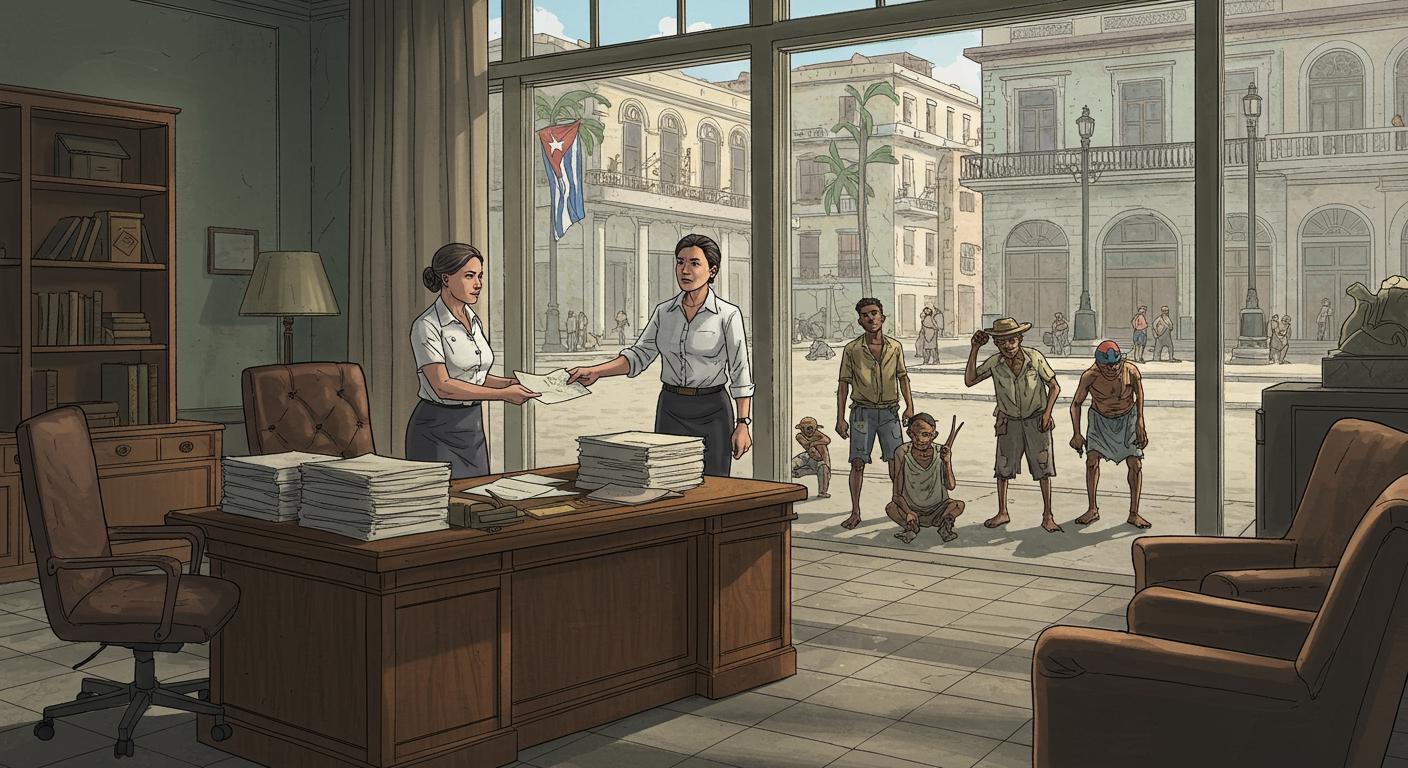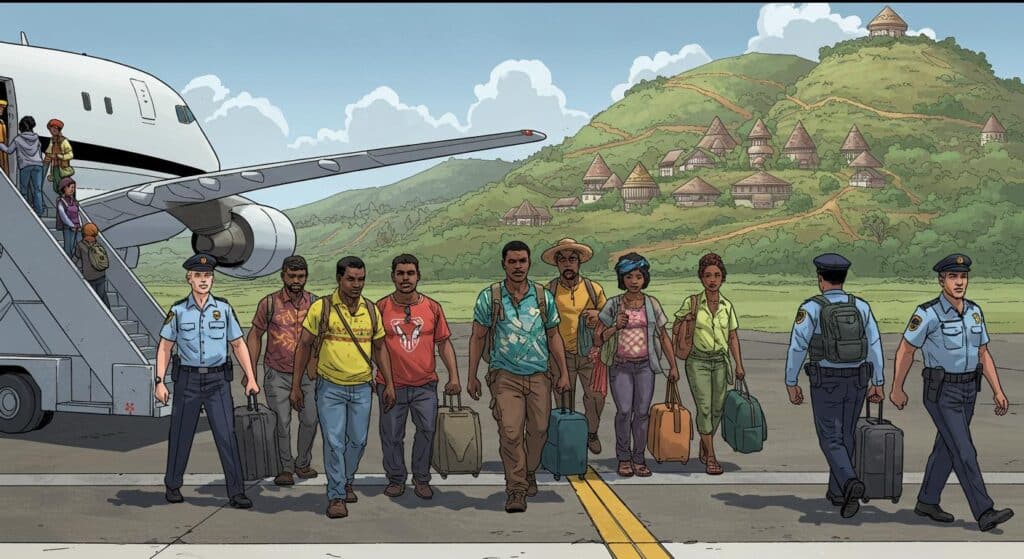Every so often, a government official manages to condense the gap between policy and gritty reality into a single, eyebrow-raising remark. The latest addition to this unofficial hall of fame: Cuba’s now-former minister of labor and social security, Marta Elena Feitó Cabrera. As reported by The Associated Press, Feitó told a committee of Cuba’s National Assembly that the people many have seen begging or rummaging through trash in Havana are merely “disguised as beggars.” The implication? If you look closely—at their hands, at the clothes they wear—poverty itself is just a sort of elaborate street performance.
Scenes from Havana, Explained Away
In a detail outlined by AP, Feitó asserted to lawmakers that, “In Cuba there are no beggars.” She elaborated by claiming those who appear to be homeless are simply dressed for the part, their allegedly clean hands or decent clothes tipping off their true status. This wasn’t a slip of the tongue: she doubled down, suggesting that people cleaning windshields at intersections do so only to fuel a drinking habit. For the dumpster divers—elderly Cubans in particular—Feitó alleged they scavenge to resell materials, conveniently dodging taxes along the way.
Officials familiar with the sharp rise in visible hardship since 2020 might have a hard time squaring this assessment with daily life on the island. Footage frequently reviewed in international coverage, and now echoed even on Cuban streets, has made familiar the sight of pensioners digging through dumpsters and cleaning car windows for tips. The Associated Press notes that until relatively recently, visible homelessness and begging were rare in Cuba, thanks to a social safety net that has now grown threadbare.
A Reality Check from All Sides
Reaction from the public and government was as swift as it was unflattering. Without mentioning Feitó by name, President Miguel Díaz-Canel criticized the comments on his X account, contending that “the lack of sensitivity in addressing vulnerability is highly questionable,” and reiterating the revolutionary ethos of leaving no one behind. By Tuesday, Feitó had “acknowledged her errors and submitted her resignation,” according to a statement from the Cuban Presidency cited in the AP report.
The source also documents that Cuba is in the grips of its toughest economic predicament in decades. The government itself announced that GDP declined 1.1% in 2024 alone, and has contracted a striking 11% over the last five years. The practical fallout of this downturn isn’t hard to spot: a retiree’s pension amounts to about 2,000 pesos per month—roughly $5 in the island’s informal market, which, as Enrique Guillén, a Havana resident, observed, doesn’t even cover a carton of eggs. “They are elderly people who count on a pension that does not exist. They cannot even buy a carton of eggs. It is the reality we are living in Cuba,” Guillén lamented in remarks AP highlighted.
So, in a place where pensions no longer buy basic staples and the economic slide is well-documented, does the notion of widespread playacting hold up? One wonders if those erecting this narrative truly believe that people opt to dig through trash for recreation—or if such claims are simply easier to repeat than to reckon with the reality outside the Assembly windows.
When Disguise Becomes Doctrine
Attributing poverty to mischief, make-believe, or crafty entrepreneurship is not a move unique to Cuban officials—though Feitó’s particular flavor of denial has its own flair. As the AP chronicles, the “disguises” on Havana’s streets tell a story of hardship, not of elaborate deception. When the social safety net frays, the temptation to patch it up with words and wishful thinking appears strong.
But does describing visible poverty as performance achieve anything but further eroding trust? Imagine a city official in Portland, confronted with evidence of neighbors sleeping in vehicles, declaring them enthusiastic van-dwellers on vacation. Would that convince anyone, or even fool the speaker?
Language—especially when coming from those in power—can reframe problems, assign blame, or momentarily distort the public perception. Yet an empty plate or an outstretched hand rarely cares for semantics. With food prices outpacing incomes and remittances from abroad now essential for survival, as noted throughout the AP’s coverage, the popularity of “disguising” hunger seems less a trend than a tragic necessity.
Denial as Policy—A Familiar Mask
All irony aside, Feitó’s remarks and resignation reflect a moment when official narrative collides headlong with daily reality. When the promise of leaving no one behind translates, in practice, to denying those trailing furthest behind even exist, the disconnect grows impossible to ignore.
Is it easier, in the end, to mask social vulnerability with official statements than to confront the cost of lost economic ground—if only to keep the old slogans afloat? If so, one could almost admire the consistency of the performance. But one still wonders: would a carton of eggs be easier to procure with the right costume, or only with the political will to see—and address—the poverty in plain sight?







